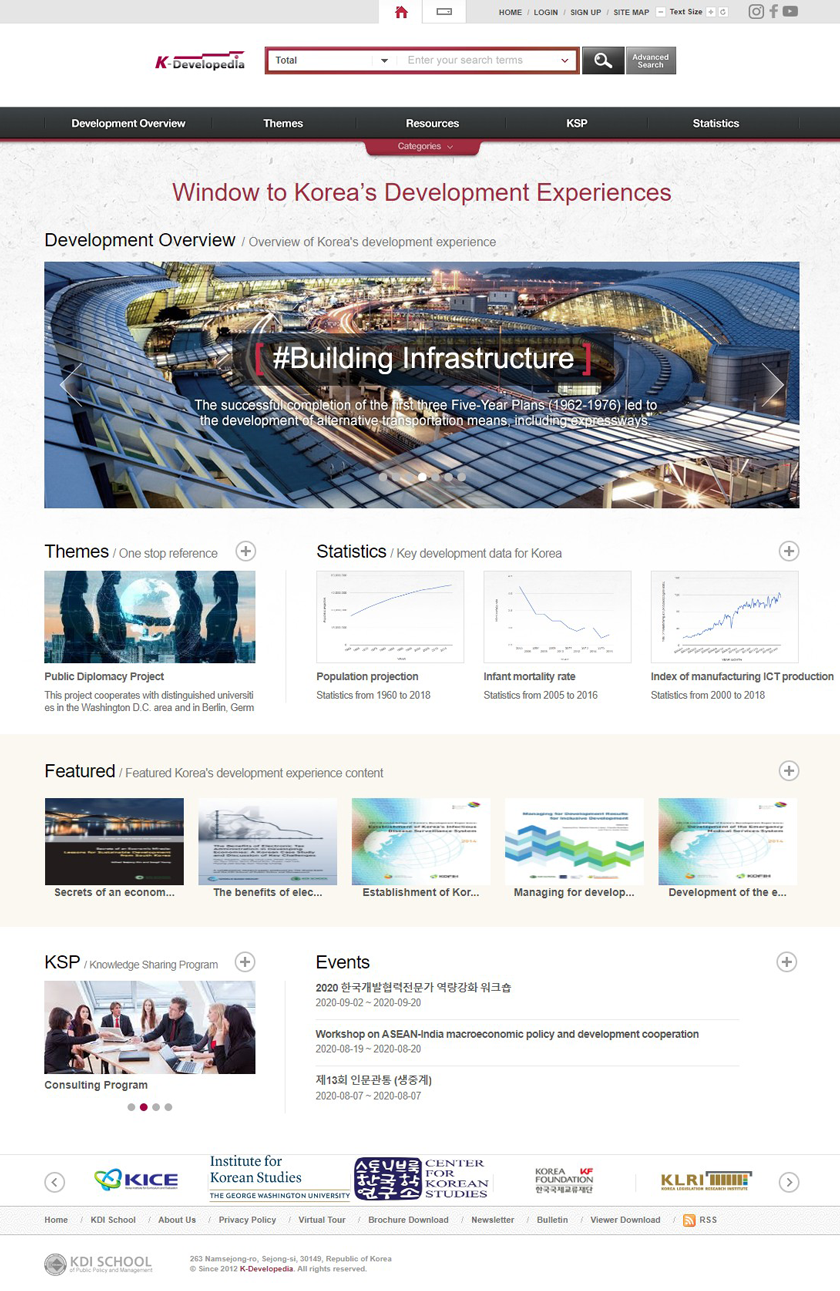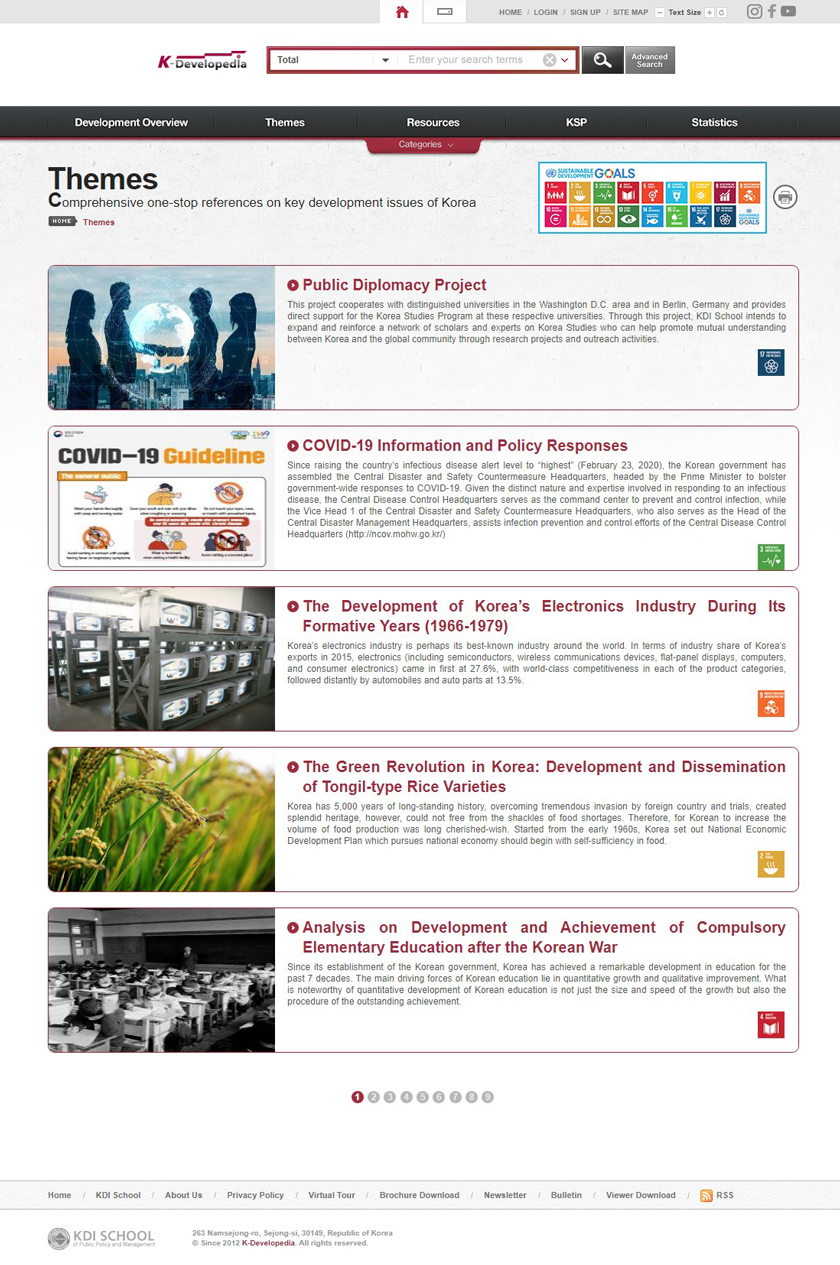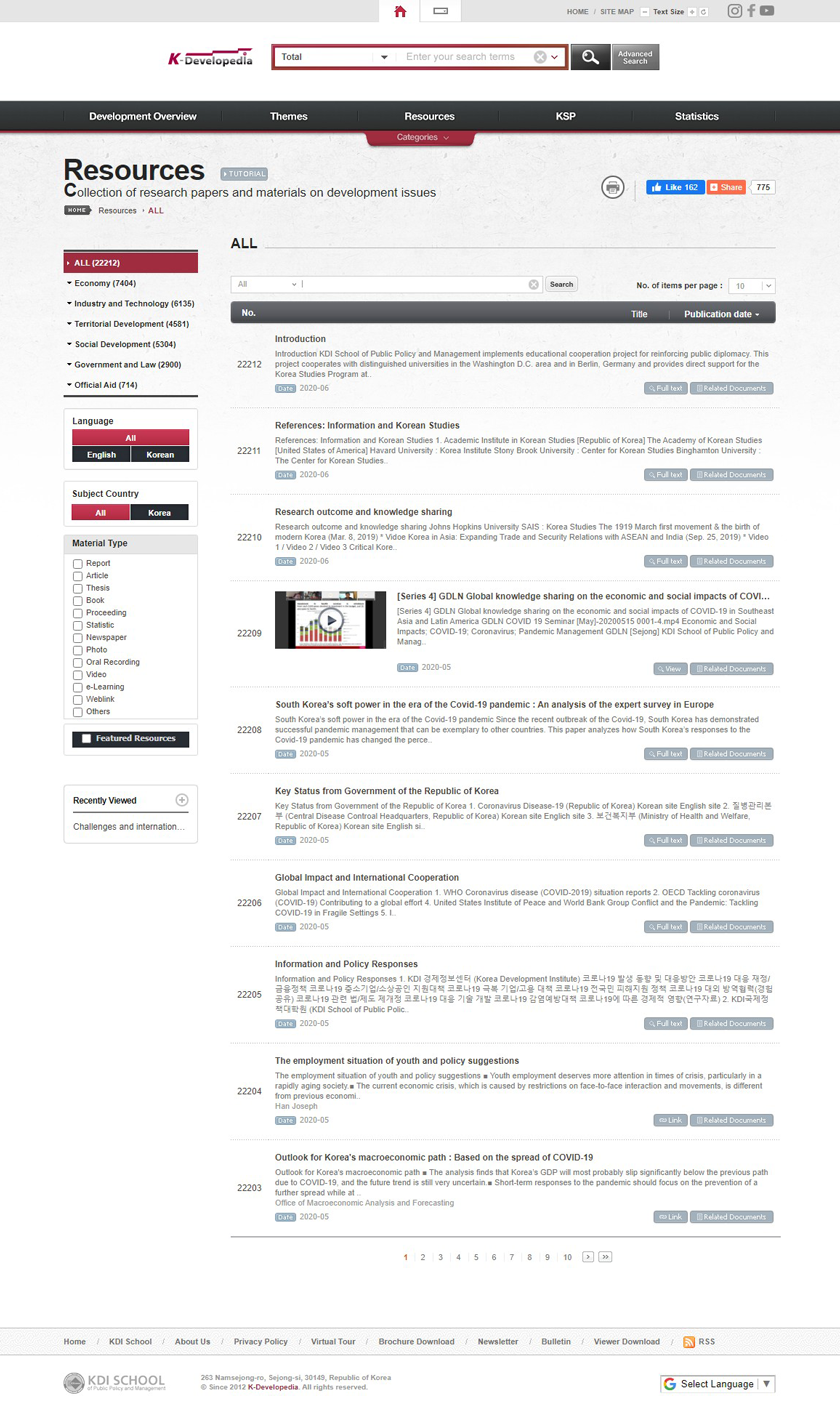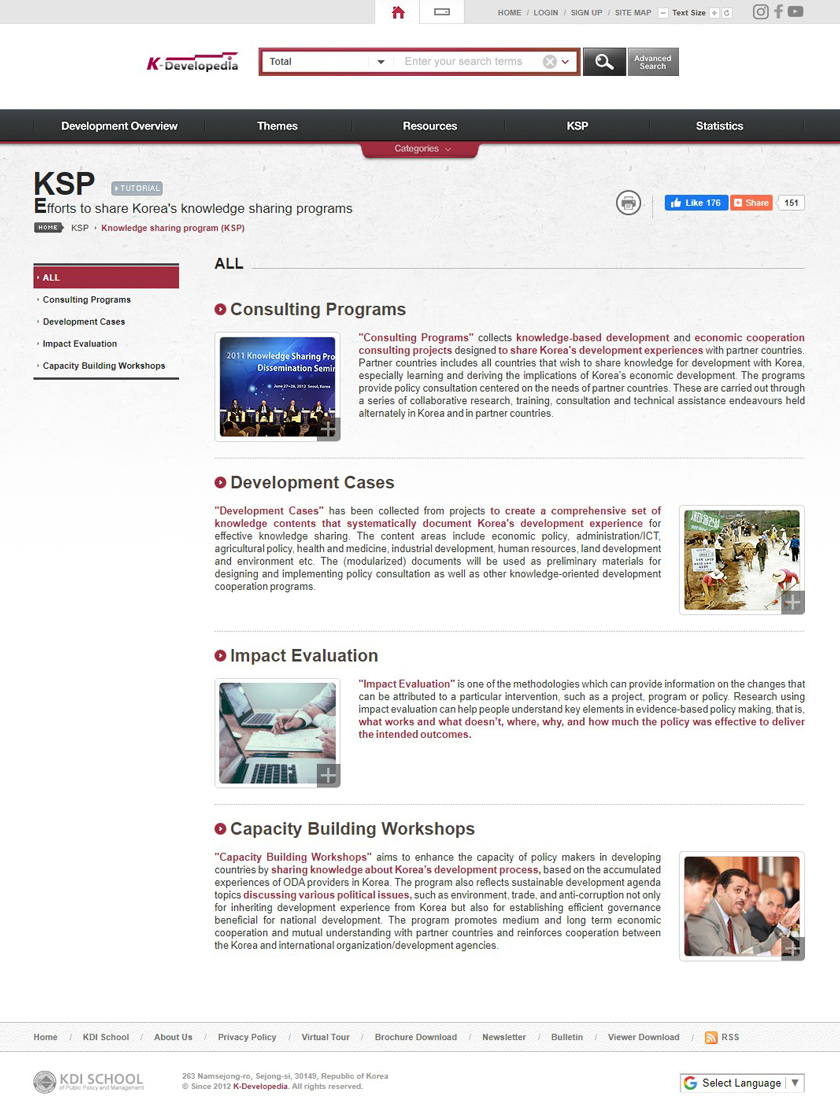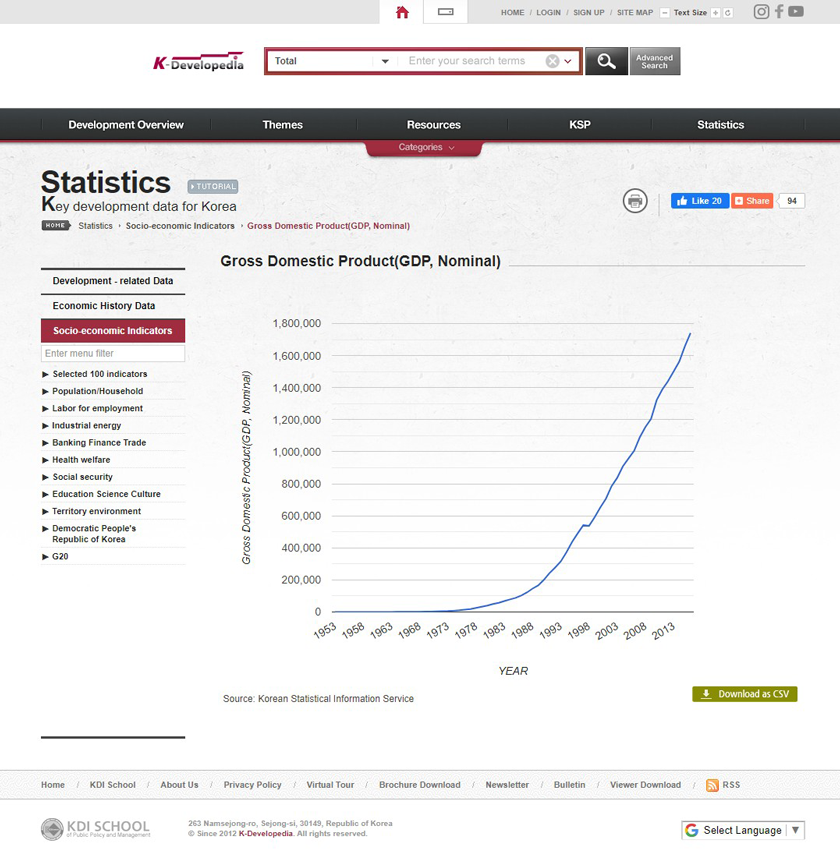What We Do
- Research Planning Division
- Cooperative Research Division
- International Cooperation Division
- Capacity Building Division
This Division approves the proposals, supports the performance, and oversees the publication process of development research projects employing empirical analyses. Centering on impact evaluation, the research conducted raises awareness on the use of scientific evaluation as an integral tool for informed policy formulation for government policy-makers, practitioners, and researchers.
- OBJECTIVES of RESEARCH LABS
-
- Enhance research productivity by consolidating research capabilities
- Establish partnerships with other research institutes and facilitate research projects across disciplines and regions
- Strengthen linkages and optimize synergies between education and research, fortifying KDI School's position as a research university
-
# Lab Research Field 1Impact Evaluation Lab(IE Lab)Impact evaluation, development cooperation, empirical analysis on social policies2Inclusive Finance and Growth Lab (IFG Lab)Inclusive finance and economic development of developing countries and emerging markets3Experiment Lab for Public Management Research (EXPMR)Adopting experiments in public management research4Data Economy Research Lab(DER Lab)Realizing data economy: smart cities, FinTech, and open government5Social Economy Lab(SEL)Theoretical and empirical analysis on social economy6Governance, Leadership and Management Lab (GLM Lab)Leadership, urban governance, and sharing economy7Open Government and Innovation Lab (OGI Lab)Digital transformation, open government, public sector modernization and innovation, public communication and the media ecosystem8Conflict and Development Lab (CaDLab)Interplay between conflict and development9Dynamic Sustainability Lab (DS Lab)Sustainability mechanism in public policy, development policy, public and private management
- RESEARCH ENVIRONMENT
-
- Transform the city of Sejong into a research-conducive hub by offering various research methodology seminars and operating a postdoctoral program
- RESEARCH PROJECTS
- Research Projects on Impact Evaluation of Development Cooperation
- Analyze and evaluate the results of development cooperation projects using randomized controlled trials, thereby contributing to evidence-based policy-making.
- Strive to broaden the scope of research and its dissemination by partnering with international organizations, including 3ie (International Initiative for Impact Evaluation)
- KDI SCHOOL RESEARCH PROJECTS
-
- Support research projects on a variety of subjects, including but not limited to, macroeconomics, finance, industrial policy, regional development and environment
- Improve research quality and promote research activities through rigorous performance management
- Contact
-
- Head
- Heesun Kim

- +82-44-550-1055
-
RESEARCH ON THE KOREAN SOCIOECONOMIC DEVELOPMENT EXPERIENCE
This Division focuses on conducting research on the Korean socio-economic development experience. Emphasis is placed on providing insight for development scholars and practitioners on Korea's innovative experiences in reforming its public policies and public management practices, utilizing case studies and diverse learning modules.
A total of 148 case studies in eight thematic areas, financed by the Ministry of Economy and Finance, were collected through the Knowledge Sharing Program (KSP) from 2010 to 2016. Based on these case studies 18 e-learning products have been created, which are managed by this Division.
KNOWLEDGE PARTNERSHIPS WITH INTERNATIONAL ORGANIZATIONS AND RESEARCH INSTITUTES
KDI School is expanding knowledge-sharing partnership with international organizations such as the International Monetary Fund(IMF), the Organization for Economic Co-operation Development(OECD) and overseas research institutes and conducting research on development policies based on the global development cooperation agenda. Also, in collaboration with the SDG Academy of the United Nations Social Development Network(UN SDSN), KDI School provides on-line educational content through Massive Open Online Courses(MOOCs) in 11 areas on Korea's development experience in context of sustainable development goals.
Related links:
KNOWLEDGE PARTNERSHIP WITH THE WORLD BANK GROUP
This knowledge partnership aims to support global initiatives for international development and cooperation through
- conducting joint research on Korea's development experience and global agenda, and
- implementing capacity-building programs for developing countries.
In addition, this joint endeavor with the World Bank contributes to the formation of effective networks for development cooperation between Korea and developing countries.
This partnership has organized more than 100 international knowledge sharing events since its inception in 2003.
OPERATION OF A COMPREHENSIVE DATABASE ON KOREA'S DEVELOPMENT EXPERIENCES (kdevelopedia.org)
K-Developedia is an online repository of data on Korea's development experience where various contents produced both in Korea and overseas are systematically collected with the aim of becoming a data-knowledge hub.
- In 2019, the website had a total of 610,214 visitors from over 200 countries.
- K-Developedia provides over 27,000 data on web content, research reports, photos, videos, statistics, and event information on Korean policies and development cases
- K-Developedia provides over 27,000 data on web content, research reports, photos, videos, statistics, and event information on Korean policies and development cases

OTHER JOINT AND POLICY CONSULTATION PROJECTS
Utilizing research assets collected through various knowledge-sharing projects, KDI School conducts joint research and consultation projects in cooperation with external organizations to share and disseminate Korea's development experiences and knowledge. By sharing the research and expertise, KDI School aims to facilitate the implementation of sound economic and social development policies of partner countries.
- Policy Consultation for Kurdistan Regional Government (KRG)
- Research on Designating ODA Priority Partner Countries
- Knowledge Sharing Program (KSP): Case Study Program (2011-2016)
- Research on Designating ODA Priority Partner Countries
- Knowledge Sharing Program (KSP): Case Study Program (2011-2016)
- Contact
-
- Head
- Youngjoo Jung

- +82-44-550-1117
This Division designs and executes various short-term training programs on an invitational basis. The signature training programs offered annually are as follows.
Global Leadership Program (non-degree program)
This flagship program was launched after Korea's hosting of the G20 Leaders Summit in 2010. The objective of the program is to enable participants from the G20 and developing countries to come together to discuss the key development pillars identified by the Seoul Development Consensus, which was created by the G20 Development Working Group when Korea hosted the Leaders Summit in 2010. The program also incorporates critical lessons from Korea's economic development experiences and the country's best practices in specific policy areas. This program is held several times during the course of one year and targets mid-level government officials working in the areas of G20 development matters
- This unique experience and opportunity by far surpassed all my expectations, the contents of the program were extraordinary and very helpful for increasing international G2O cooperation. It was also invaluable in enhancing my professional network all over the world to open new horizons of great opportunity. I met incredible professors from KDI School, all with enormous professional and academic experiences, and the organizers were always professional with a great capacity to seamlessly organize and facilitate our daily activities.
- - G20 Global Leadership Program
Raul Balmaceda Valdez, Director of Implementation of Policies of Ethics,
Ministry of Public Administration / Mexico
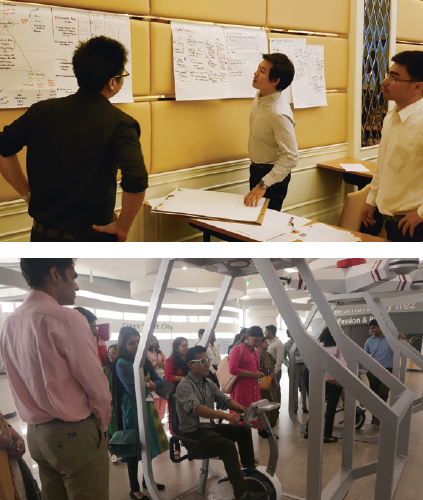
Capacity Building Program for International Development Cooperation
The program aims to reduce knowledge gaps in the field of development through fellowship programs and international development conferences for experts in Asia
The International Partnership Programs
These programs are designed to build capacity of government officials from transitional economies by having participants engage in knowledge sharing and knowledge exchange activities that incorporate action plan learning. The programs are designed in collaboration with relevant government agencies in partner countries.
Capacity Building Program for Latin America and the Caribbean Countries
KDI School has been offering short-term training programs for public officials in the Central American region since 2012 to help enhance their professional capacity of public policy. To further this mission, KDI School has collaborated with the University of San Carlos of Guatemala to establish a regional higher education institution for policy education, the ERPPD (Escuela Regional de Politicas Públicas para el Desarrollo).
Global Development Learning Network (GDLN)
The GDLN, a World Bank initiative, is a unique partnership of over 88 affiliates in approximately 61 countries. This network of affiliates from around the world is committed to advancing Sustainable Development Goals through knowledge sharing. KDI School is equipped with state-of-the-art videoconferencing facilities and is an active member of the Global Distance Learning Network (GDLN).,KDI School offers a series of programs through the GDLN as noted below.
Blended Learning Programs
GDLN Korea offers Blended Learning Programs, comprised of e-learning modules, videoconferencing seminar sessions, and concluding with face-to-face training in Korea. The thematic areas vary but focus on Korea's development experiences, lessons, and best practices.
Videoconference Programs
The GDLN offers videoconference programs throughout the year to regional affiliates on development subject matters, such as climate change, human capital development policy, and financial soundness. The Capacity Building Center also shares some of its most popular programs to members of the GDLN community virtually, providing a value-add for training program participants and those who can connect virtually.
GDLN Global Secretariat
KDI School assumed the role of the Global Secretariat as of July 2014, which was previously hosted by the World Bank since the network's inception. As the GDLN Global Secretariat, the KDI School's role is to enhance and facilitate GDLN global and cross-regional programs and activities, and support the work of the GDLN Global Board.
Optional Value-Add
As part of the KDI and KDI School's mission to promote knowledge-sharing and disseminate information, if agreeable to partner countries, specific sessions of suggested programs can be simultaneously broadcast via videoconference to further expand the target audience, which could include additional members of the partner countries or other relevant parties or organizations.
- For more information about the GDLN, please visit the following websites.
- GDLN Global: www.gdlnglobal.org
- GDLN Korea: www.gdln.or.kr
Educational Cooperation Project for Reinforcing Public Diplomacy
This project is a partnership with distinguished universities in the Washington D.C. area and in Berlin, Germany that aims to provide direct support for the Korea Studies Program at these respective universities. Through this project, KDI School intends to expand and reinforce a network of scholars and experts on Korea Studies who can help promote mutual understanding between Korea and the global community through research projects and outreach activities.
- Contact
-
- Managing Director
- Haiyoung Yun
- +82-44-550-1118
-
- Head
- Sungmook Kang

- +82-44-550-1269
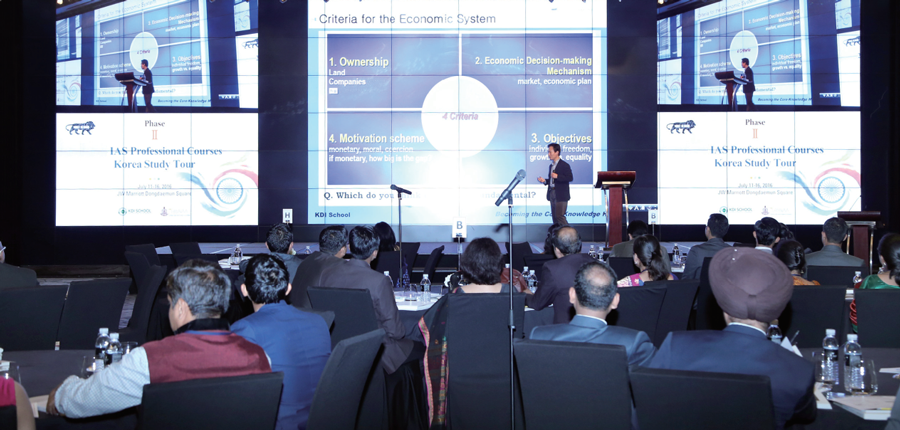
This Division carries out carefully tailored short-term training programs for partner countries and government officers in Korea that are designed to enhance the participants' ability to analyze socio-economic policy issues by expanding their policy-making perspectives. Thematic program topics include Korea's development experiences in various policy sectors, including but not limited to economic development policy, infrastructure policy, public-private-partnerships, human resources development, education, ICT, e-government, and anti-corruption. Programs vary in length and content, depending on the needs of the partner countries, but can include blended learning methodologies including e-learning, action plan learning, or project-based learning programs.
These programs are intended to support partner countries and government officials in developing countries by strengthening their professional capacity on policy issues through knowledge sharing and action plan learning. The Division has experience working with partner institutions from a wide range of countries, including Bangladesh, India, Saudi Arabia, Sri Lanka, Thailand, Philippines and Uzbekistan, among others.
KOICA Programs
Through its partnership with the Korea International Cooperation Agency (KOICA), the Capacity Building Division operates numerous capacity building programs for selected partner countries. These programs are multi-year commitments and designed to meet the learning needs in the policy priority areas of partner countries. Current and previous partner countries include Indonesia, Kenya, Morocco, Nepal, Mongolia and Vietnam, among others.
The Capacity Building Division can build tailor-made programs using the below tools and topics to meet the learning objectives of the participants and their varying levels of expertise.
|
Pre-Learning
|
|
|
Training Topics
General Topics
Sectoral Topics
|
|
|
Actions Plan Presentations
Program participants are requested to prepare an Action Plan Report on their countries' efforts in formulating economic development policies and strategies, incorporating their learning from the training program. This is a supervised process that is integrated from the start of the program to the program's conclusion.
|
|
|
Field Study Trips
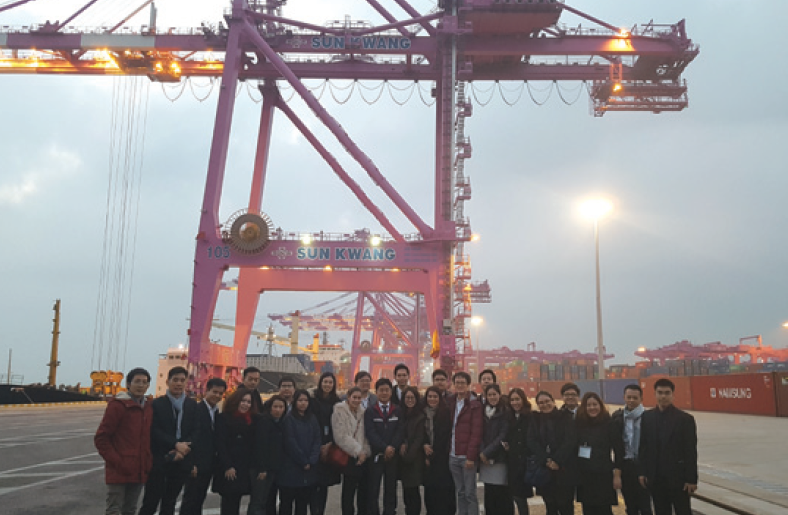 Training programs typically include field study trips to major industrial sites and relevant institutions in Korea, during which issue-related roving seminars are presented. Field study trips include visits to government ministries, local government offices, national research institutes, and industrial complexes located throughout the country. The site visits provide an opportunity for the participants to acquire information directly from specific sector-focused organizations or agencies for more in-depth knowledge-sharing opportunities.
|
|
|
Cultural Activities
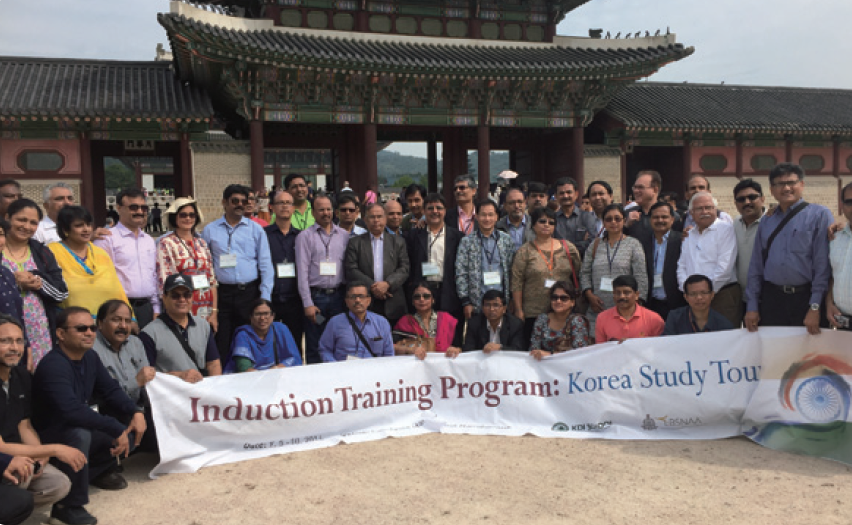 Customized training programs also include visits to Korea's historical sites, which help enhance the participants understanding of the social and cultural aspects of Korean society.
|
- Contact
-
- Managing Director
- Haiyoung Yun
- +82-44-550-1118
-
- Head
- Youngdae Yoo

- +82-44-550-1236
- +82-10-5634-8312




